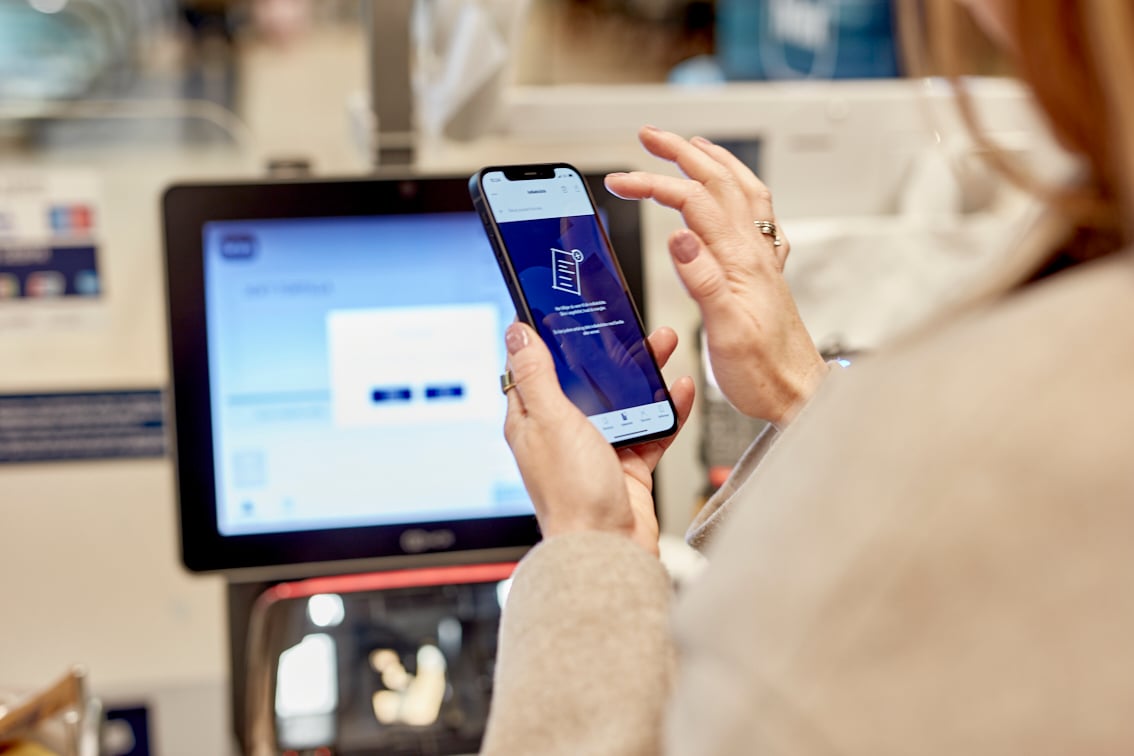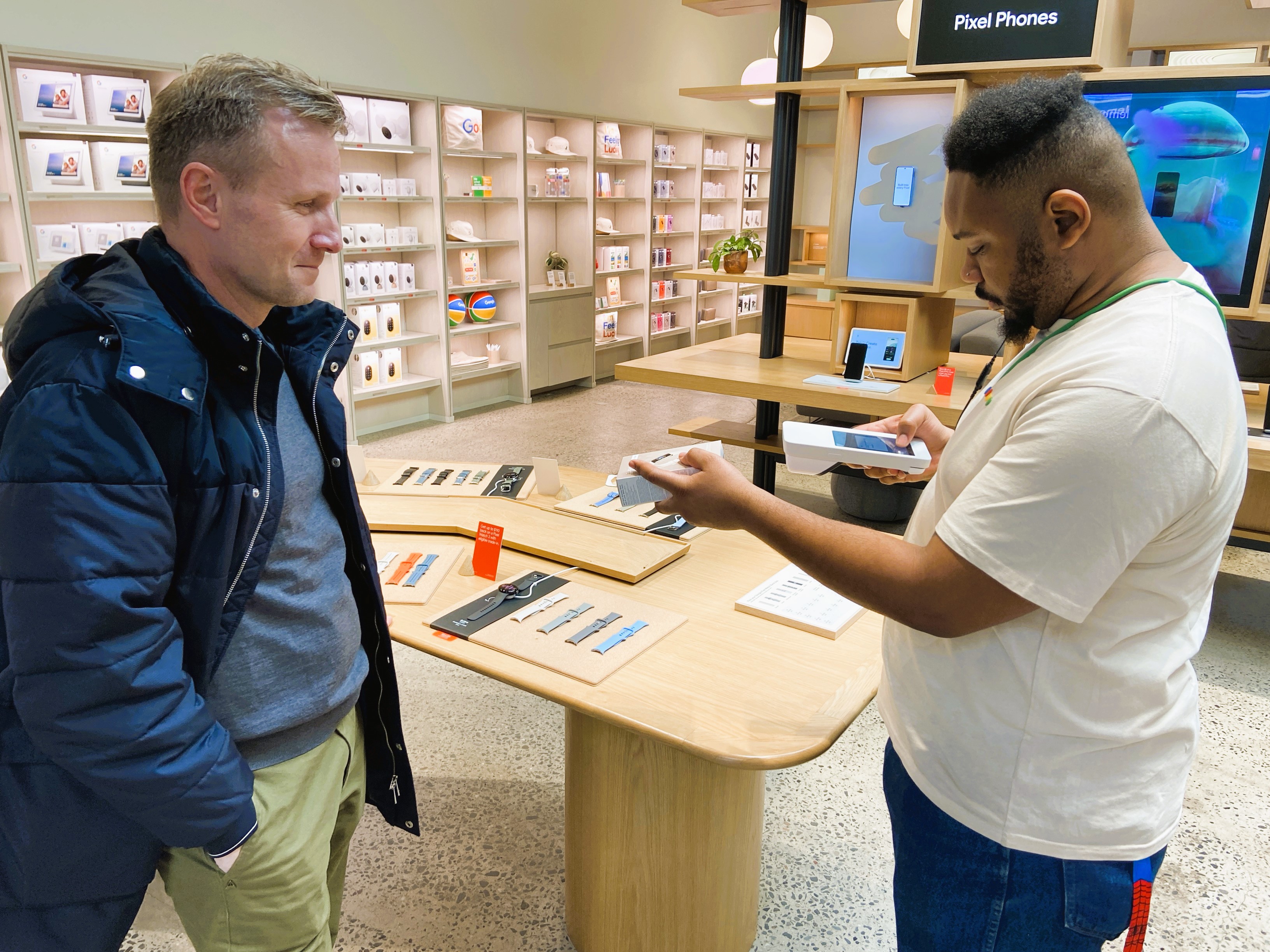The list of benefits that come with implementing an omnichannel business model is long and includes additional sales, cost optimization, and customer loyalty.
This blog post will focus on 7 concrete benefits that can add value to your business.
- Increase the number of items in your customers' basket
- Sell your products - even when your physical store has closed
- Reduce customer service costs
- Reduce costs per sale
- Market your products to several different segments
- Create brand awareness
- Achieve customer loyalty
1. Increase the number of items in your customers' basket
No one knows your customers' needs and buying behavior better than you. With an omnichannel approach, you have the opportunity to get to know them even better.
Data streams across your integrated channels give you a unique opportunity to gain insight into your customers' buying patterns and burn rates on the products they have previously purchased from you. With this knowledge, you can tailor personal recommendations and offers that meet your customers' needs, often even before they become aware of them themselves. This way, you can ensure that your customers always are provided with a personal experience at your shop - both physically, online, and across channels. You must get permission from your customers to collect and store their data - for example, via a login or a loyalty program.
In addition to offering your customers personal recommendations and offers, with a 360-degree insight into their buying behavior, you can follow up on started but unfinished purchases. For example, it could be that your customer has added a shampoo to their basket on your webshop and later visits your store to buy a conditioner. With this knowledge, you can achieve additional sales by suggesting the customer buy the shampoo from the online basket.
2. Sell your items - also when your physical store has closed
Today customers want to control their buying process - they want to decide what, when, and how they buy. With an omnichannel business model, you extend the time frame of when you can sell to your customers. This does not only mean that you increase the possibility of selling more because your shop is never closed, but also that you can meet your customers’ needs at any time.
When you give your customers access to your business 24/7, they can shop with you at the most convenient time for them. On a busy day, where not everyone has the opportunity to shop within “normal” opening hours, it is great service always to be available.
3. Reduce customer service costs
It is reasonable to think that there may be more pressure on customer service when your business is open 24 hours a day, but this is not necessarily the case. With an online presence, you can integrate a self-service feature, such as a chatbot, blog, or knowledge sharing forum, that allows your customers to solve their problems. That way, you can save time and money by reducing customer service costs. Once the self-service function is established, it is only required that it is maintained.
4. Reduce costs per sale
When you sell your products both instore and online, you will typically find that it is cheaper to sell online, as you save expenses, e.g., rent, furnitures and employees.
However, it is still relevant to maintain a physical presence as many do their research online but prefer to experience brands and products in real life before finally deciding to buy. With a business based on the combination of a physical and online presence, you allow your customers to choose the path for their own customer journey.
With the implementation of omnichannel as a business model, you can distribute your resources and expenses across several channels and reduce expenses per sale while meeting your customers' wishes and needs.
5. Create brand awareness
Today, customers often do their research through both online searches, on social media, and by visiting physical stores before purchasing a product. When it comes to creating brand awareness, it is a definite advantage that you are present on multiple channels. A visible brand across platforms can determine that you win the customer and not your competitor.
It is important that you are consistent in your communication across your channels - your logo and tone of voice must be identical. This way, you can make sure that potential customers recognize your brand and your products.
6. Market your products to several different segments
Your customers can easily share gender, age, and geographical location without having the same preferences and interests. It has been common to work with segments based on gender, age, geographical location, etc. However, segmentation is no longer a stationary exercise. Many agree that segmentation should, to a much greater extent, be based on, for example, the life cycle stage and preferably based on data.
Your collected data can give you an insight into what and where you should communicate to different customer segments. With a presence on several different channels and targeted content, you have the best conditions for marketing your products.
7. Achieve customer loyalty
The opinions on whether the concept of customer loyalty is still relevant to deal with are divided. Today's consumer has a myriad of options within the individual product category; access to information on price and specifications is also easily accessible. Therefore, it does not take much, probably just a slightly lower price or a faster delivery, before a potential customer chooses your competitor over you.
However, it may still be relevant and possible to achieve customer loyalty if you look at the parameters customer loyalty is most often measured on - whether the customer will recommend your business and whether the customer will buy at your store again, e.g., two years into the future.
With an omnichannel business model, you have a great possibility of achieving customer loyalty. You can provide your customers with a seamless customer journey across channels and offer them full flexibility - no matter where, when, and how they choose to shop. At the same time, access to your customers' data allows you to provide a personalized service with relevant offers and information.




